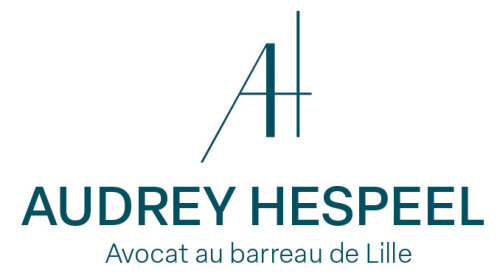Best Collaborative Law Lawyers in Tourcoing
Share your needs with us, get contacted by law firms.
Free. Takes 2 min.
Free Guide to Hiring a Family Lawyer
List of the best lawyers in Tourcoing, France
About Collaborative Law in Tourcoing, France
Collaborative Law in Tourcoing, France, is an alternative dispute resolution practice aimed at resolving legal issues, typically family-related matters, such as divorce or custody arrangements, without going to court. It involves an open process where both parties, along with their lawyers, work together to find mutually beneficial solutions. The emphasis is on communication, cooperation, and avoiding the adversarial nature of traditional litigation. This approach is popular in Tourcoing and across France, as it aligns with a growing preference for more peaceful and constructive legal resolutions.
Why You May Need a Lawyer
There are several situations where Collaborative Law might be applicable and why you may need a lawyer in Tourcoing, France. If you are undergoing a divorce and wish to avoid a contentious court battle, Collaborative Law can help negotiate terms amicably. It is also useful in cases of child custody where parents desire a fair and balanced agreement regarding their children's upbringing. Business partnerships that are dissolving can also use this peaceful approach to untangle their legal obligations without a fight. Whether it is property division or establishing post-separation living arrangements, having a lawyer skilled in Collaborative Law ensures that your interests are effectively represented while fostering an environment of mutual respect and collaboration.
Local Laws Overview
The local laws in Tourcoing underpinning Collaborative Law are influenced by broader French legal standards while allowing for specific local interpretations and practices. Notably, Collaborative Law agreements are recognized within the legal framework and can be enforced by the courts if all parties consent to this method from the start. Lawyers practicing Collaborative Law in Tourcoing must receive specific training to ensure they can facilitate effective negotiation and mediation sessions. Additionally, once a Collaborative Law agreement is reached, it is often formalized as a legally binding contractual agreement. This hybrid legal approach allows for flexibility and adherence to standard legal expectations simultaneously.
Frequently Asked Questions
What is Collaborative Law?
Collaborative Law is a legal process used to resolve disputes amicably without going to court, often involving negotiations facilitated by trained lawyers.
How does Collaborative Law differ from mediation?
Collaborative Law typically involves both parties having their respective lawyers present, while mediation may only involve a neutral third party overseeing the discussions. Both focus on reaching a mutual agreement, but Collaborative Law combines legal counsel with negotiation.
Who can participate in Collaborative Law?
Any party involved in a dispute, such as divorcing spouses or business partners, can participate as long as they agree to engage in the process with their respective Collaborative Law attorneys.
Is a Collaborative Law agreement legally binding?
Yes, once an agreement is reached and formalized, it can be legally binding and enforceable in the same manner as conventional court orders.
What happens if no agreement is reached in Collaborative Law?
If an agreement is not reached, parties can pursue other resolution methods, such as litigation, but the collaborative lawyers typically will not represent them in court.
How long does the Collaborative Law process take?
The duration varies based on the complexity of the issues and the willingness of parties to negotiate, but it is generally quicker than traditional litigation.
Is Collaborative Law confidential?
Yes, discussions and negotiations in Collaborative Law are typically confidential, fostering openness and honesty. This confidentiality is a fundamental principle of the process.
Can Collaborative Law be used for non-family-related disputes?
Absolutely. While often associated with family law, Collaborative Law is applicable to various civil disputes, including business disagreements and community conflicts.
How do I start the Collaborative Law process?
Begin by contacting a Collaborative Law-trained lawyer who can guide you through initiating the process and engaging the other party appropriately.
Are the outcomes in Collaborative Law recognized by courts?
Yes, once agreements are formalized, they are recognized by courts and can be submitted for legal enforcement.
Additional Resources
If you're seeking further guidance, there are several resources and organizations that can assist you. The French Bar Association provides insights and referrals. Locally in Tourcoing, the regional legal aid offices can offer advice tailored to your circumstances. Consider contacting Collaborative Professionals of France for a directory of trained professionals in your area. Moreover, many libraries and community centers provide free informational seminars and workshops about alternative dispute resolution methods, including Collaborative Law.
Next Steps
If you believe Collaborative Law might be the right path for your situation in Tourcoing, the first step is to seek a consultation with a lawyer trained in Collaborative Law. They will evaluate your case, discuss your objectives, and explain the process in greater detail. From there, they can help you prepare to approach the other party involved to propose Collaborative Law as a method of resolution. Make sure to gather all pertinent information and documents related to your case to streamline the process and ensure productive discussions from the start.
Lawzana helps you find the best lawyers and law firms in Tourcoing through a curated and pre-screened list of qualified legal professionals. Our platform offers rankings and detailed profiles of attorneys and law firms, allowing you to compare based on practice areas, including Collaborative Law, experience, and client feedback.
Each profile includes a description of the firm's areas of practice, client reviews, team members and partners, year of establishment, spoken languages, office locations, contact information, social media presence, and any published articles or resources. Most firms on our platform speak English and are experienced in both local and international legal matters.
Get a quote from top-rated law firms in Tourcoing, France — quickly, securely, and without unnecessary hassle.
Disclaimer:
The information provided on this page is for general informational purposes only and does not constitute legal advice. While we strive to ensure the accuracy and relevance of the content, legal information may change over time, and interpretations of the law can vary. You should always consult with a qualified legal professional for advice specific to your situation.
We disclaim all liability for actions taken or not taken based on the content of this page. If you believe any information is incorrect or outdated, please contact us, and we will review and update it where appropriate.









